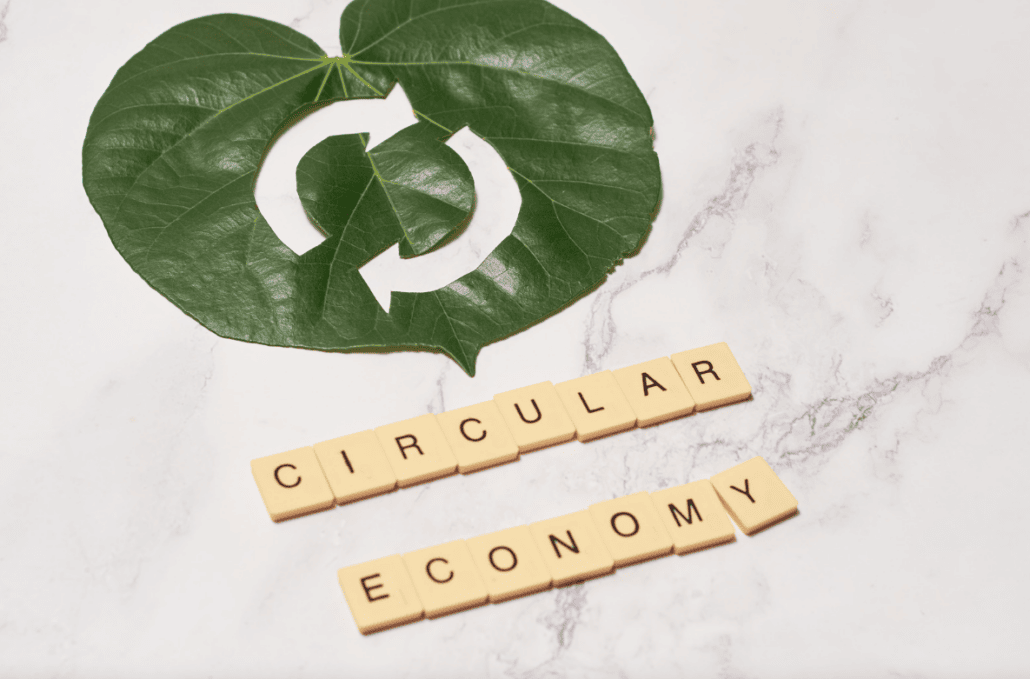The furniture industry has a huge impact on the environment in North America. In 2018, nearly 10 million tons of furniture was disposed of in landfills in the U.S. alone. Furniture shouldn’t end up in landfills while many families and individuals are struggling to furnish their homes. That’s where Furniture Bank comes in. Our model of collecting donations of unwanted furniture and redistributing it to those in need has not only helped transform the lives of people, but it also contributes to a sustainable circular economy.

What is a circular economy and how does Furniture Bank contribute to it?
The concept of a circular economy is to create a system where resources are used and reused with zero waste throughout the process. Furniture Bank’s diversion with purpose redirects furniture that was once destined for landfill and gives it a second life. This means that instead of new resources being used to produce furniture, Furniture Bank is able to redirect what was once waste into something useful. This approach is a great example of how companies and organizations can contribute to a more sustainable future by repurposing resources that would have otherwise gone to waste.
Conserving resources and reducing our carbon footprint
By accepting gently used furniture donations, and repairing items in our Workshop, we are able to give new life to items that may have otherwise ended up in a landfill. Since 2020, Furniture Bank has successfully diverted thousands of tonnes of furniture from landfills, equivalent to 3 millions of kilograms of carbon dioxide emissions avoided. This achievement is a testament to our commitment to environmental stewardship and our efforts to reduce the carbon footprint associated with furniture waste.
Our work in waste diversion is particularly significant given the growing challenges of waste accumulation and the environmental impact of landfills. Landfills are a major source of methane emissions, a potent greenhouse gas that contributes to climate change. By repurposing furniture, we reduce the demand for new furniture production, which is often associated with deforestation, energy consumption, and carbon emissions. By providing furniture to those in need and finding responsible ways to dispose of unwanted items, Furniture Bank is not only helping individuals and families, but also making a positive impact on the planet.

The fast furniture industry
Americans generated 12.1 million tons of furniture and furnishings waste in 2018, with only 0.3% being recycled. Furniture waste is becoming an increasing problem with the growing popularity of fast furniture, which is when items are built only to last a few years and sold at a cheaper price. The availability of fast furniture has changed the furniture industry as a whole, furniture that is cheap, lightweight, and trendy has become the preference for many consumers. Not only is the furniture waste from fast furniture an issue, but the production process also has a significant carbon footprint due to mass production and global shipping.
The fast furniture industry is not supportive of the circular economy, and is in fact harming the planet.
Impact of donations
Climate crisis and waste pollution are growing concerns and communities around the world are exploring ways to reduce waste and promote sustainability. As a homeowner, there are steps you can take to join the circular economy movement and help make a difference. Donating unwanted furniture that is in good condition, to Furniture Bank or a local organization in your neighbourhood instead of throwing it away. A donation to Furniture Bank helps reduce waste and also provides furnishings to those in need. Taking part in this sort of donation program is just one way to do your part and help create a more sustainable future.
Have furniture you want to keep out of the landfill?
Request a pickup from Canada’s most socially responsible furniture removal service here:






